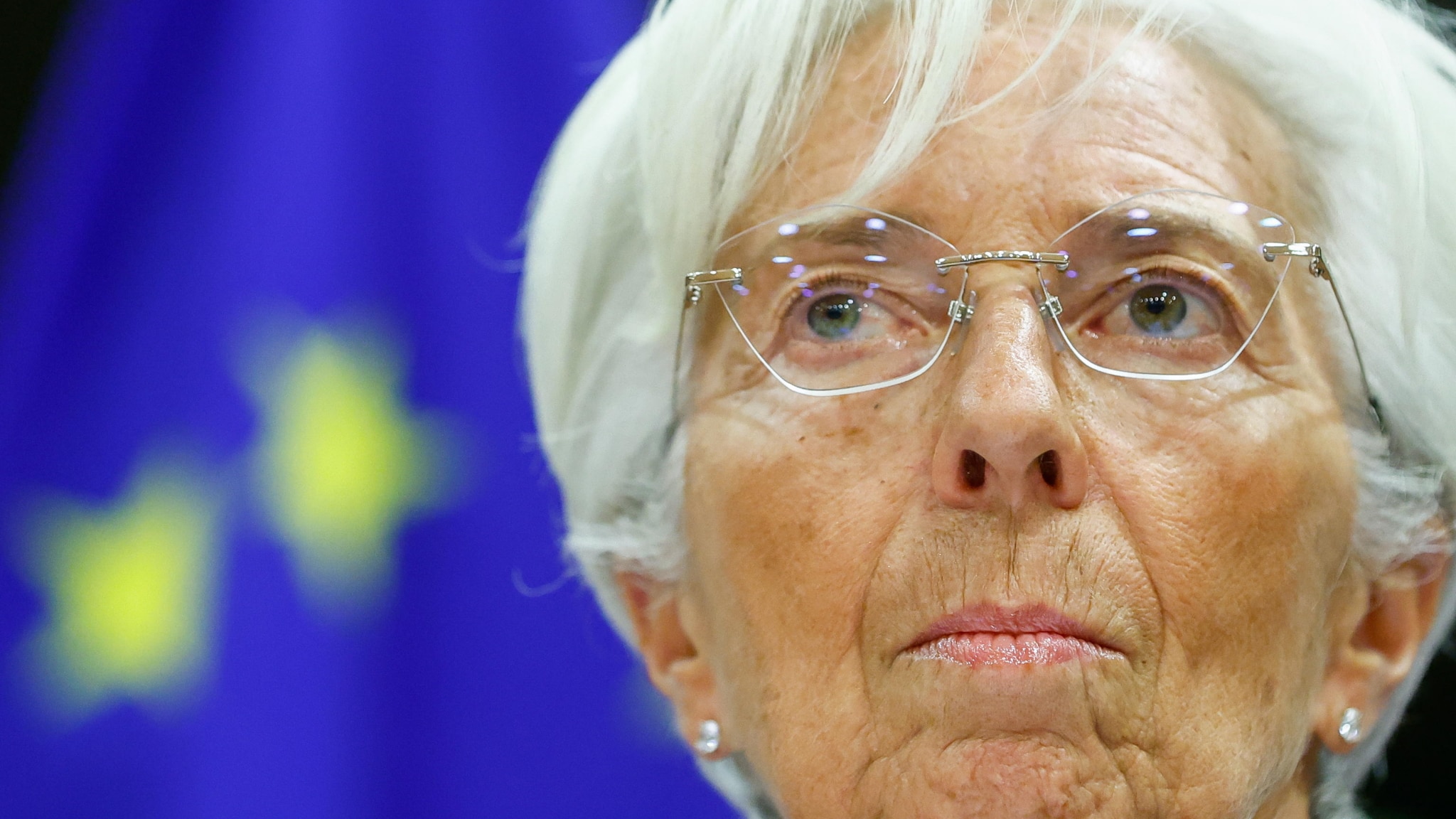2023 "will certainly be a difficult year, of which the first quarter will most likely be negative as we believe that the fourth quarter of 2022 will also be negative".
This is the picture outlined by the president of the European Central Bank (ECB),
Christine Lagarde
, during her speech at the hearing of the Economic Affairs Committee of the European Parliament, who added: "Will 2023 be a year of recession? The future will tell", highlighting that "the projections still assume that 2023 will be positive by 0.9%, but in the downward scenario a recession of 0.9% is expected. And, given the uncertainty" also "on the fiscal response that will be given by some Countries, it is difficult to predict the true result for 2023 ".
Lagarde said that a substantial slowdown in economic activity is expected in the coming quarters, mainly due to
four factors
: "First,
high inflation
is holding back spending and production across the economy and these headwinds are reinforced. from interruptions in the gas supply ".
Furthermore, "the strong
demand for services
that came with the reopening of the economy is losing momentum".
"Third,
weakening global demand
, including in the context of tightening monetary policy in many major economies, and worsening exchange rates will mean less support for the global economy.
uncertainty remains high
, as shown by the decline in confidence of households and businesses ".
Lagarde said that "Russia's unjustified aggressive war of aggression against Ukraine continues to cast a shadow over Europe. My thoughts are with the Ukrainian people suffering from the senseless atrocities of the war. The economic consequences for the area. of the euro have continued to manifest since we last met in June and
the outlook is darkening
. "
"
Inflation
- continues Lagarde -
remains too high
and is likely to remain above our target for a long time. In our meeting earlier this month, the Governing Council therefore took an important step to anticipate the transition from the prevailing level. highly accommodative of official rates towards levels that will ensure the prompt return of inflation to our medium-term target of two per cent ".
"The ECB's baseline inflation projections have been revised significantly upwards; Annual inflation is now expected to stand at 8.1% in 2022, 5.5% in 2023 and 2.3% in 2024 ", said the president of the ECB.
"The risks to the inflationary outlook are mainly to the upside, mainly reflecting the possibility of further major disruptions in energy supply. Although these risk factors are the same for growth, their effect would be the opposite: they would increase inflation but they would reduce growth, "he added.
"Based on the medium-term inflation outlook, the Governing Council has decided to raise the three key ECB interest rates by 75 basis points, in addition to the 50 basis point increase announced in July. As things stand,
we expect to further increase interest rates in upcoming meetings
to dampen demand and prevent the risk of a persistent upward shift in inflation expectations ".
"We will regularly evaluate our policy path in light of incoming information and evolving inflation outlooks. Our future policy rate decisions will continue to depend on data and will follow a meeting-by-meeting approach," he added.
Rising energy and food prices "weigh on the most vulnerable households in particular, and the situation should get worse before it gets better. In this context, it is essential that the fiscal support used to protect these households from the impact of lower prices. elevated both temporary and targeted, "explains Lagarde.
"This limits the risk of fueling inflationary pressures, thus also facilitating the task of monetary policy to ensure price stability and helping to preserve debt sustainability," she added.
The new monetary policy instrument - explains the president of the ECB - the Transmission Protection Instrument (Tpi), "was designed to counteract unjustified and disordered market dynamics, with sufficient flexibility to respond to the seriousness of the risks to which transmission is exposed. of the ECB's policies ", but" is subject to a list of eligibility criteria that the Governing Council will use to assess whether a jurisdiction pursues sound and sustainable fiscal and macroeconomic policies. "
The so-called anti-spread shield, she added, "will safeguard the uniqueness of our monetary policy as the Governing Council proceeds on its path to normalization of official rates, helping us to ensure medium-term price stability in line with ours. mandate".
"The best contribution monetary policy can make to the euro area economy is to ensure price stability over the medium term. This means ensuring that inflation expectations remain well anchored and that demand conditions are consistent with the our goal ".
This was stated by the president of the ECB, Christine Lagarde, in a hearing in the hearing of the Monetary Affairs Committee of the European Parliament.
Responding to a question about the possibility that the anti-spread shield is necessary for Italy, Lagarde said that the instrument, "does not serve any country specifically but to all, because its purpose is the adequate transmission of monetary policy to all the member countries of the Eurozone, from the Baltics to Malta ".
There are four conditions for adopting the ICTY: "The first is compliance with the EU fiscal framework, the second is the absence of serious economic imbalances, the third is fiscal sustainability and the fourth is solid and sustainable macroeconomic policies. ".
"I cannot reduce the price of gas, I would like to but I cannot. Maybe a good reform of the electricity pricing mechanism would help, but this is not up to me", concluded President Christine Lagarde.

